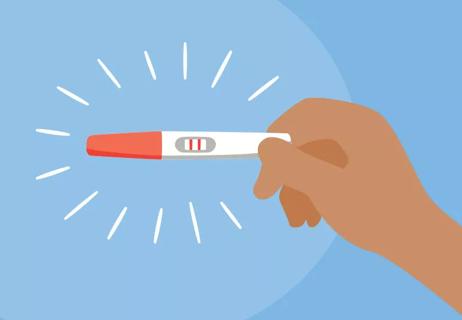A fertility specialist talks timeline, diet and other prep steps

There’s tons of guidance out there about the many things to do and not do when you're pregnant, from reducing caffeine intake to avoiding soft cheeses to not handling kitty litter. But what should you do — or not do — if you’re trying to get pregnant?
Advertisement
Cleveland Clinic is a non-profit academic medical center. Advertising on our site helps support our mission. We do not endorse non-Cleveland Clinic products or services. Policy
Reproductive endocrinologist Stephen B. Mooney, MD, talks about the ways you can best ready your body and mind when you’re trying to conceive.
If you know you want to try to conceive, there’s no one best time to start preparing your body and mind. In a perfect world, we’d all prioritize our physical and emotional health all the time — but in a busy, sometimes-stressful world, it’s not unusual to put our individual health on the back burner.
“If you're really being conscious about preparing your body and mind for pregnancy, ideally, you should start as much as a year or six months before,” Dr. Mooney says, “But in reality, even three months or 90 days of preparation goes a long way.”
If “Have a baby” is at the top of your to-do list, there are some things you can do to put yourself in the best possible position to conceive and carry. Dr. Mooney shares some of the steps to consider.
Your family’s health issues can become your health issues — or at least play a part in the way your doctor addresses your questions about fertility.
Certain hereditary cancers, like breast cancer, ovarian cancer, cervical cancer and uterine cancer, can impact fertility. “If you know you have a family history in your mother, sister, aunt or grandmother, this information is critical to share with your physician,” Dr. Mooney says.
Advertisement
Other health issues may have an impact on your fertility care, too, so tell your doctor if you have a family history of heritable conditions such as:
“Having this information will help your doctor make more informed decisions about certain screenings, diagnostic tests and other procedures to help mitigate or minimize complications in getting or being pregnant,” Dr. Mooney advises.
Heads up: You can, in theory, get pregnant within days of stopping your birth control, so don’t do it until you’re good and ready.
“There’s a common misconception that you should be off birth control for a while before trying to get pregnant — so that you can get your cycle back,” Dr. Mooney says. “But in reality, unless your birth control is masking an underlying ovulation disorder, you may get pregnant relatively quickly after going off contraceptives.”
You might not yet know much about your fertile window — the time of the month when you can get pregnant. Enter ovulation tracking, which can be done through various methods.
The best time to get in the habit of taking a prenatal vitamin is before you’re pregnant. One of their most important ingredients is folate, or folic acid, which helps your fetus’ spinal column to close properly, and prevents spina bifida.
The other vitamins and nutrients in prenatals help sustain and nourish both you and, eventually, the little life growing inside of you. “When you’re pregnant, nutrients are shifted from you to the fetus, so it’s important to have a continuous supply of important nutrients for fetal growth,” Dr. Mooney says.
Stress reduction isn’t directly correlated to improved rates of pregnancy, but there’s a lot of value in it that can impact your overall well-being, which can affect your fertility.
“Reducing stress can help you think more clearly, make life decisions with confidence, be able to weigh options rationally and improve your relationships at work, at home and beyond,” Dr. Mooney says.
High stress levels can also have a direct impact on your menstrual cycle, causing you to stop having a period or even to have your period too often, which can affect your ability to get pregnant.
Get moving! Dr. Mooney recommends 30 minutes of exercise a day, at least five times a week.
Advertisement
“Exercise improves cardiovascular health, helps with weight management and relieves stress,” he says — all of which are positives in general, but especially when you’re trying to get pregnant.
Your weight can impact your ability to conceive, so talk to your doctor or dietitian to learn about proper calorie intake, exercise and other healthy habits as you try to conceive.
If you have underweight, and particularly if you're living with an eating disorder, like anorexia or bulimia, you may not ovulate or may have irregular periods.
“Even those who have underweight without eating disorders can have issues that relate to ovulation, cycle management, implantation of pregnancy and preterm delivery once they do become pregnant,” Dr. Mooney says.
Obesity, too, can affect your menstrual cycle, including the quality of your eggs. Having overweight can also increase your risk for:
“I encourage patients with obesity to first try to maintain their weight, and then we can get a plan in place to begin to lose weight,” Dr. Mooney recommends. “Start slow, with just five pounds, then 10 or 12, and we’ll go from there.”
If you’ve been meaning to up your eating habits, now’s the time to revamp them. Try embracing a diet that trends toward:
Advertisement
“We typically recommend a low-carb, Mediterranean-style diet, with lots of leafy green vegetables,” Dr. Mooney says. “Essentially, anything brightly colored in the produce aisle is likely to have a lot of good nutrients in it.”
There are also a variety of foods you shouldn’t eat when you’re pregnant. If you’re currently consuming a lot of them, you may want to try to cut them out before you get pregnant, just to make things easier on yourself when the time comes. In particular, scale back on predator fish, such as tuna, which can expose you to increased levels of heavy metals, including mercury and cadmium.
Smoking is a known risk factor for infertility.
“Our lung cells are separated from the blood vessels in the lungs by just one cell layer, so anything we take in, such as cigarettes or marijuana, goes into the bloodstream and transits throughout the body,” Dr. Mooney explains.
“All of the compounds in cigarette smoke end up deposited throughout the body — including the ovaries. And so cigarette smoking can have a profound, detrimental impact on ovarian function, egg quality and egg number.”
Advertisement
It’s better never to start smoking at all. But if you’re currently in the habit of lighting up, try quitting smoking to boost your chances of a healthy pregnancy.
You don’t have to give up your a.m. coffee when you’re trying to get pregnant. But if you typically have a few morning mugs, you might want to cut down.
“Having 500 milligrams or more of caffeine per day — the equivalent of five or six cups of coffee — has been shown to have an impact on fertility and miscarriage,” Dr. Mooney says.
Try limiting yourself to no more than two caffeinated beverages (including coffee, tea and soda) per day when you’re trying to conceive.
A range of medications can affect your ability to conceive and can have an impact on your fetus once you become pregnant.
“If you’re trying for pregnancy, review your prescription medication list with your physician and ask: ‘Do any these have any impact on pregnancy?’” Dr. Mooney advises.
Some common medications that may affect fetal development include:
Before you panic about stopping a medicine that’s integral to your own wellness, there’s good news: Dr. Mooney says that in many cases, your doctor can guide you toward a safer swap.
If no alternative is available, though, your doctor will work closely with you to discuss the risks of being pregnant while on the medication and determine the best and safest course of action for you and your fetus.
It can be frustrating — and even devastating — to try to conceive and continue seeing just one line on repeated pregnancy tests. If you’ve been trying for six months to a year with no success, it may be time to see a doctor.
Infertility is defined as one year of unprotected intercourse without achieving pregnancy. If you’re age 35 or older, though, that timeframe is shortened to six months.
“Start having the dialogue with your partner and your healthcare provider sooner rather than later,” Dr. Mooney says, “So you can feel prepared and assertive in starting to get the care you require.”
Learn more about our editorial process.
Advertisement

While it’s probably not your most fertile time, it is possible to get pregnant if you have unprotected sex during your period

While 80% of women will get pregnant within six months, age and other factors make a difference

How a BMI in the overweight or obesity range affects ovulation and how to increase fertility

The short answer from an Ob/Gyn

An Ob/Gyn explains the question of timing

Most antihistamines, like Zyrtec, are OK, but avoid decongestants for at least the first trimester

These over-the-counter kits are 99% effective at identifying when you’re most fertile each month

Start having sex about 72 hours before ovulation, then at least every other day during your fertile window

Wearing a scarf, adjusting your outdoor activities and following your asthma treatment plan can help limit breathing problems

Your diet in the weeks, days and hours ahead of your race can power you to the finish line

When someone guilt trips you, they’re using emotionally manipulative behavior to try to get you to act a certain way